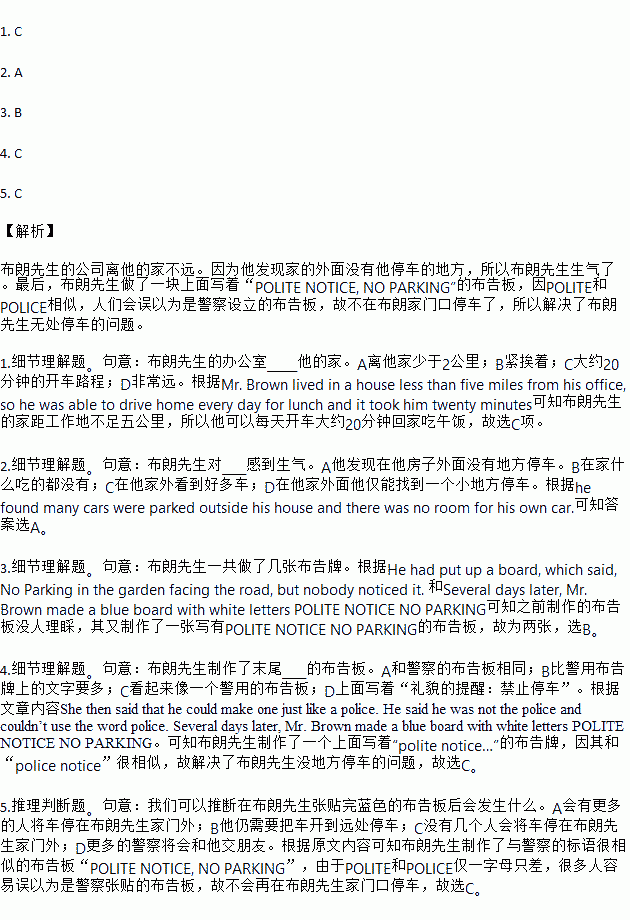题目内容
Mr. Brown lived in a house less than five miles from his office, so he was able to drive home every day for lunch and it took him twenty minutes. Every time he drove home at noon, he found many cars were parked outside his house and there was no room for his own car. He had to drive somewhere else to park his car. Then he had to walk back home. This made him very angry.
He had put up a board, which said, No Parking in the garden facing the road, but nobody noticed it. People seemed to obey only a police notice with white letters on a blue board: POLICE NOTICE NO PARKING
Mrs. Brown said that he could steal a police notice. But he was afraid to do so. She then said that he could make one just like a police. He said he was not the police and couldn’t use the word police. Several days later, Mr. Brown made a blue board with white letters POLITE NOTICE NO PARKING
Oh! Mrs. Brown said, "But you told me you weren’t going to use the word police, but why do you use it now?" Really?" he asked, "Look again. " She started to laugh. "You are really clever."
1.Mr. Brown's office was_____ his house.
A. less than two miles from B. next to
C. about 20 minutes' drive from D. very far from
2.Mr. Brown was angry about that_______
A. he found no room to park his car outside his house.
B. he had nothing to eat for lunch at home
C. he saw many cars outside his house
D. he could find only a small place to park his car outside his house.
3.Mr. Brown made_______ notice board(s) altogether .
A. one B. two C. three D. no
4.Mr. Brown made a notice board which_______in the end.
A. was just the same as a police notice B. had more words than a police notice.
C. just looked like a police notice D. said “POLICE NOTICE NO PARKING”
5.We can infer that_______after Mr. Brown put up the blue board.
A. more people would park their cars outside Mr. Brown's house.
B. he still had to drive away from his house to park his car.
C. fewer people would park their cars outside Mr. Brown’s house.
D. more police would make friends with him.
 名校课堂系列答案
名校课堂系列答案
